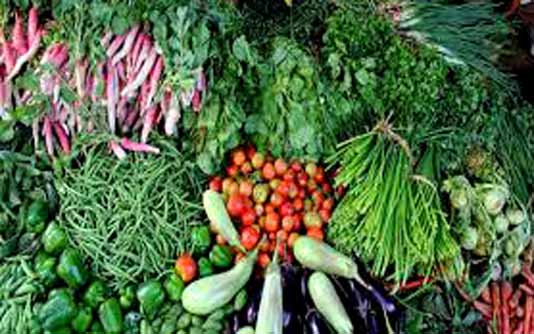NARSINGDI, Nov 20, 2020 (BSS) – Farmers in Narsingdi have expressed satisfaction over the fair prices of early variety winter vegetables this season in the local retail and wholesale markets.
Farmers in different areas including the vast char lands of the district are successfully cultivated early varieties of winter vegetables like radish, cauliflower, cabbage, gourd, tomato, bean brinjal, lalshak and plungshak.
The farmers are happy over smooth formation of vegetables and favorable climate condition with a hope to get bumper production of various winter vegetables this season.
Department of Agriculture Extension (DAE) officials sources said farmers of the district in the meantime have cultivated over 5000 hectares of early variety vegetables out of total 9000 hectares land fixed by DAE for winter vegetables cultivation this season.
BSS correspondent on Thursday visited different villages of Shibpur and Belabo upazila, the main vegetables productive areas of the district found that farmers with enthusiasm harvesting various early winter vegetables from their fields.
The correspondent also visited different wholesale hats(Markets) at Shibpur and Belabo upazilas found that farmers are busy selling their productive vegetables.
Coulflower are selling at Tk 3000 to 4000 per hundred, Bean are selling at Tk 2000 to 2500 per mounds, gourd at Tk 4000 to 5000 per hundred, Brinjal at Tk 2000 to 2500 per mound and radish are selling Tk 1500 to Tk 2000 per mound.
A large quantity of vegetables is being transported to Dhaka and other district from Shibpur, Belabo and Raipura upazilas.
Local traders said at present more than five trucks are loaded with various vegetables every market day.
Deputy Director of DAE Shovan Kumar Dhar said Narsindgi district is a leading vegetable producing areas in the country and usually supplies 30 to 40 percent of its production to the capital and other districts.
He said the DAE encouraged the farmers for cultivating poison free vegetables using compost instead of chemical fertilizers and poisonous pesticides.
At present, a good number of farmers are now producing poison free vegetables in the district.



